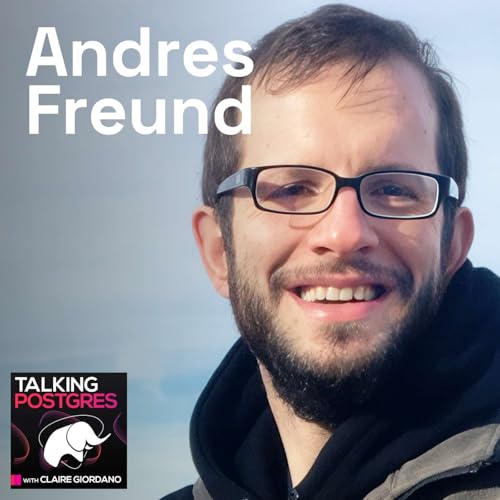
What went wrong (& what went right) with AIO with Andres Freund
Failed to add items
Sorry, we are unable to add the item because your shopping cart is already at capacity.
Add to basket failed.
Please try again later
Add to Wish List failed.
Please try again later
Remove from Wish List failed.
Please try again later
Follow podcast failed
Unfollow podcast failed
-
Narrated by:
-
By:
About this listen
Six years, a prototype, and a brief multi-layered descent into “wronger and wronger” design—what does it take to land a major architectural change in Postgres? In Episode 31 of Talking Postgres, Andres Freund—major contributor, Postgres committer, and lead of the Asynchronous I/O project—shares the wins, the missteps, and why he thinks AIO definitely took too long. We dig into io_uring in Linux, direct I/O, streaming reads, technical leadership, and exactly when is the right time to stop working on a prototype. If you’ve ever wondered how big architectural changes happen, or why they sometimes take years, this episode is for you.
Links mentioned in this episode:
- Talking Postgres podcast: How I got started as a developer (& in Postgres) with Andres Freund & Heikki Linnakangas
- Release Notes: PostgreSQL 18 release notes
- News: PostgreSQL RC 1 Released on Sep 04 2025
- Wikipedia page: io_uring
- PostgreSQL: Join the PostgreSQL Hacking Discord
- Video of talk: What went wrong with AIO by Andres Freund at PGConfdev 2025
- Commit: Add core asynchronous I/O infrastructure to PostgreSQL
- Wiki page: AIO project in PostgreSQL with state, sub-projects, and work still to be done
- Upcoming Talk: AIO in PG 18 and Beyond at PGConf NYC on 30 Sep 2025
- Upcoming Talk: AIO in PG 18 and Beyond at PGConf EU on 23 Oct 2025
- Wikipedia page: XZ Utils backdoor discovery by Andres Freund
- Cal invite: LIVE recording of Ep32 of Talking Postgres to happen on Wed Oct 8, 2025
No reviews yet
In the spirit of reconciliation, Audible acknowledges the Traditional Custodians of country throughout Australia and their connections to land, sea and community. We pay our respect to their elders past and present and extend that respect to all Aboriginal and Torres Strait Islander peoples today.


